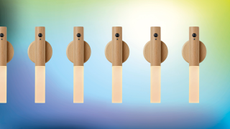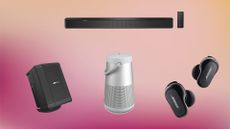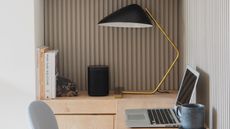Samsung vs LG TV: which TV brand is the best in 2023?
Samsung and LG both make excellent televisions, but how to choose between them?
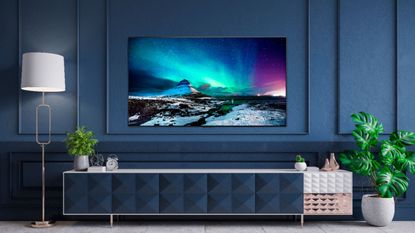

When it comes to TVs, Samsung and LG make some of the best-rated sets around. Deciding between the two giants can be tricky, especially as both brands make products that span the price gamut from cheap and cheerful to ultra-premium.
But there are some things you should remember when trying to decide between an LG or Samsung TV. While an expensive LG TV will beat a cheap Samsung set and vice versa, these points may help push you one way or another when looking at two sets in a similar price bracket. We'll also discuss the difference between OLED TVs and Samsung's alternative technology - QLED.
Keep reading to discover the key differences between Samsung and LG TVs, or head over to our guide to the best TV brands for more comparison.
- You can find out which models we chose as the best Samsung TVs and best LG TVs in our respective guides.

Samsung vs LG TV: General pointers
Before we get started on the specific differences between Samsung and LG TVs, it’s important to cover factors that add hundreds of dollars to your average TV price.
The first is resolution, which is to say the number of pixels embedded in the screen: the higher the number, the sharper the image. In 2022, there are three resolutions sold: 1080p (or Full HD), 4K, or 8K, which ranges from just over two million pixels to more than 33 million. At the time of writing, you almost certainly want 4K, which is the sweet spot. 1080p images look a bit blurry on larger screens, while 8K adds a premium for a format that simply isn’t broadcast anywhere at the moment — not on cable and not on streaming platforms.
Secondly, size plays a key role. As a general rule of thumb, the bigger the screen, the bigger the price tag. And while the difference between 55- and 65-inches may not sound like much on paper, in practice, it’s a lot more because that measurement is taken across the diameter. A 55-inch TV, for example, has an 89% greater area than a 40-inch set. So ask yourself, “what size TV do I need?” before you begin your search.
You can still find 75-inch sets that are cheaper than the best 40-inch TVs, though, and that’s down to the type of panel in use. More affordable sets will use LCD panels, and Samsung and LG have budget sets using this basic tech. But when you reach the more premium levels, the difference between LG and Samsung TVs becomes more pronounced.

Samsung vs LG TVs: Display technology
At the top end of the market, you've likely heard of two panel types fighting for dominance: OLED and QLED. While Samsung has recently released its first OLED panel, it's chiefly known for championing QLED. LG, meanwhile, is renowned for its OLED panels (and makes them for other manufacturers.)
What's the difference? OLED stands for 'Organic Light-Emitting Diode,' meaning that each of the TV's pixels - over 8 million in a 4K panel — are individually lit. This leads to incredible immersion in darker scenes (because the pixels turn off, so they are completely black) and unbeatable contrast. So there's a reason the
The main drawbacks are a lower peak brightness than panels with backlights, making them poorly suited to rooms with a lot of natural light during the day. There's also the risk of burn-in — where an image can be permanently scarred into the screen if it remains static for too long (think news tickers and sports scores.) But modern OLED panels have precautions in place to ensure this is more of a theoretical risk than an actual problem with regular use.
Despite the name QLED, Samsung's proprietary technology significantly enhances the LED panels in cheaper sets. While the pixels don't individually light, QLED has several dimming zones and uses quantum dots for improved color and contrast. Also, look out for the mini-LED QLED sets - such as the
Ultimately, the picture quality isn't as good as OLED in perfect conditions, but it's not far off, and the enhanced brightness makes it far better suited to bright rooms or daytime viewing, which is significant.
LG also has something called NanoCell, similar to QLED — where a layer of nanoparticles is placed between the LED backlight and the screen to boost colors and contrast. These are cheaper than OLED panels, with essentially the same pros and cons as QLED.

Samsung vs LG TVs: Formats and operating systems
With little to choose between Samsung and LG in terms of raw quality, you might want to consider the formats supported. While LG supports Dolby Vision in its top-end TVs, Samsung chooses HDR10+ instead. LG has the advantage here, given Dolby Vision has a 12-bit color gamut to HDR10+’s 10-bit. It’s also a bit more widely supported.
There’s also the TV software to consider. To be clear, both LG’s WebOS and Samsung’s Tizen support all the major streaming apps. Both are well-regarded (especially compared to the historically rather half-baked Android/Google TV). Still, you may find one more appealing than the other. LG’s high-end sets also come with the “Magic Remote,” where you can select things via a mouse-like pointer on the screen. For more on these user interfaces, head over to our guide to whether a smart TV or streaming device is a better investment.
Speaking of navigation, both TVs support voice assistants, with Alexa and Google Assistant built-in (and Samsung’s own Bixby assistant pushed on its sets, too.) This means you can control TVs with the power of your voice should you wish, though a remote is still most people’s preference.
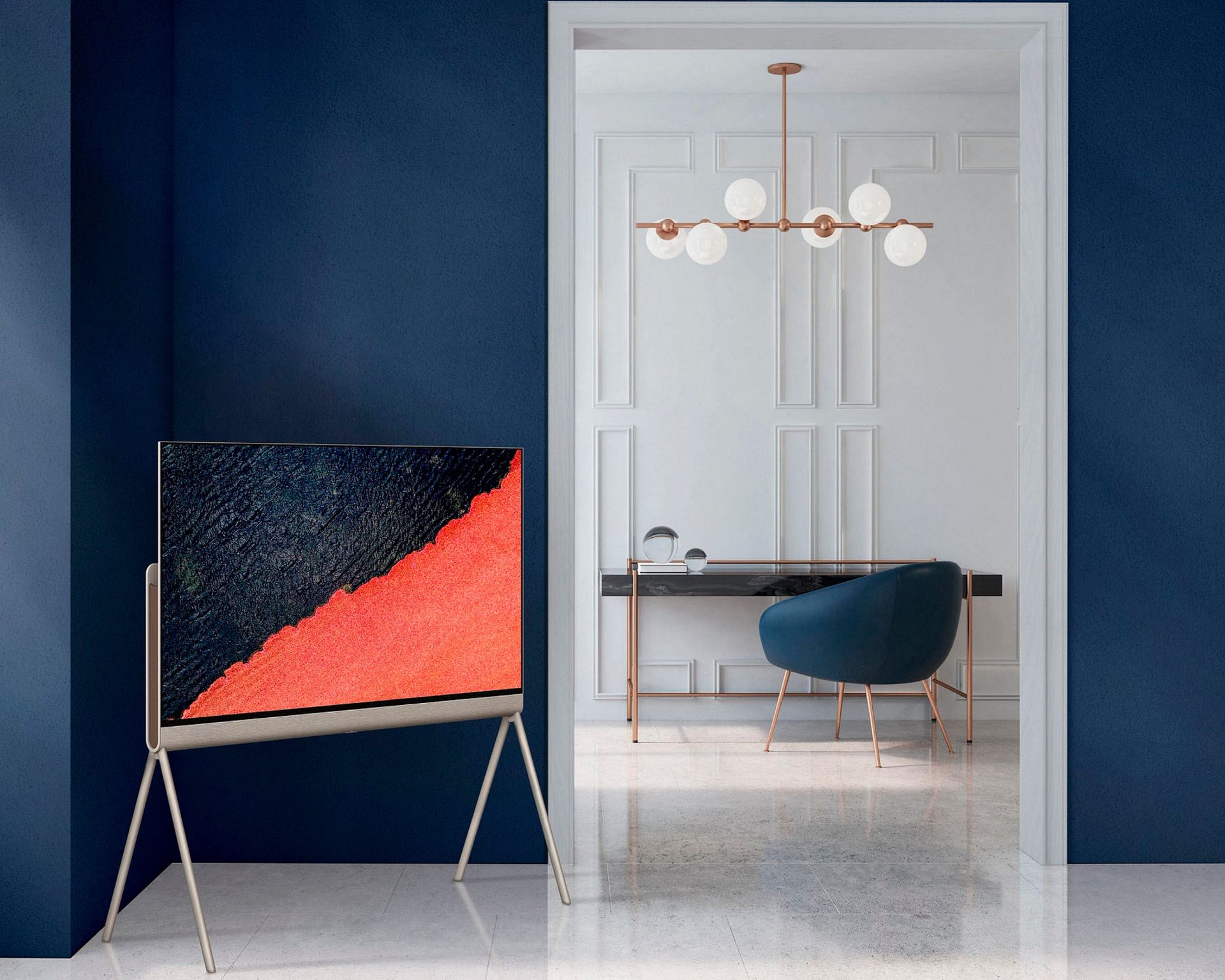
Samsung vs LG TVs: Which should you choose?
Hopefully, this guide will have offered some helpful pointers about whether to go with an LG or Samsung TV. Still, it's important to remember this is only general advice and can't apply to specific sets. Crucially, a high-end TV from one will always beat a low-end model from the other, no matter the relative strong points of the brands in general.
Because of their commitment to lifestyle TVs like
Meanwhile, if you're looking for a bargain, LG is our winner for the best budget models. In our opinion, OLED panels are the best screen tech around right now, so LG also comes out on top there, too. If you're in the position to seriously splurge, the LG Signature range could undoubtedly offer some inspiration. The brand has also released a rival to the Samsung Serif - the LG Posé.
If you have a specific model in mind, look up reviews to see its strengths and weaknesses. Ideally, see the set in person too — but remember that the showroom's lighting is unlikely to match that of your living room.
Be The First To Know
The Livingetc newsletter is your shortcut to the now and the next in home design. Subscribe today to receive a stunning free 200-page book of the best homes from around the world.
Freelance contributor Alan has been writing about tech for over a decade, covering phones, drones and everything in between. Previously Deputy Editor of tech site Alphr, his words are found all over the web and in the occasional magazine too. He often writes for T3 and Tom's Guide. When not weighing up the pros and cons of the latest smartwatch, you'll probably find him tackling his ever-growing games backlog. Or, more likely, playing Spelunky for the millionth time.
-
 The 4 Things People With Really Organized Kitchen Drawers Always Have
The 4 Things People With Really Organized Kitchen Drawers Always HaveLevel up your ‘drawer decor’ and keep things tidy and organized with these 4 essential ideas for uncluttered storage
By Becca Cullum-Green Published
-
 Experts say These 6 Paint Ideas are Devaluing Your Home — 'Be Sure to Redecorate if you Plan to Sell!'
Experts say These 6 Paint Ideas are Devaluing Your Home — 'Be Sure to Redecorate if you Plan to Sell!'Thinking of selling up? Avoid these paint colors to maximize the potential of your space and appeal to prospective buyers
By Ottilie Blackhall Published
-
 These Viral $40 Lights Make Your Home Easier to Live In — And They're Pretty Chic, Too
These Viral $40 Lights Make Your Home Easier to Live In — And They're Pretty Chic, TooThese Scandi-inspired wall sconces are the lighting solution you didn't know you needed. I'm so taken by them!
By Brigid Kennedy Published
-
 It's not too late to grab a Bose speaker for up to a third off in the Prime Day sales - here are the top bargains
It's not too late to grab a Bose speaker for up to a third off in the Prime Day sales - here are the top bargainsWe've scoured Amazon for the best Prime Day Bose deals this year, but you'd better be quick!
By Caroline Preece Published
-
 If you've been thinking about buying a Ring doorbell, now's your chance - even the newest model is on sale for Prime Day!
If you've been thinking about buying a Ring doorbell, now's your chance - even the newest model is on sale for Prime Day!Looking for a Prime Day Ring deal? You've come to the right place...
By Caroline Preece Published
-
 Super cute - and easy for you to control - the best smart speakers for kids make parenting a little simpler
Super cute - and easy for you to control - the best smart speakers for kids make parenting a little simplerEnjoy music and stories with our edit of the best smart speakers for kids plus advice on what to look for when choosing an age-appropriate design
By Emily Peck Published
-
 Ring Alarm System (2nd Gen) review: the brand's made-over kit is still a winner
Ring Alarm System (2nd Gen) review: the brand's made-over kit is still a winnerWe tested the Ring Alarm System 5-Piece Kit to see if it could make home security simpler for the average user, and how it may have improved on the first gen system.
By Caroline Preece Published
-
 eufy Home Alarm Kit review: a simple but effective way to keep your home safe
eufy Home Alarm Kit review: a simple but effective way to keep your home safeThe eufy Home Alarm Kit has all of the basics on paper, but we wanted to test it out on our own home to see how easy it is to set up and use.
By Caroline Preece Published
-
 HomePod mini vs Sonos One: two high-end smart home hubs, but which is the better speaker?
HomePod mini vs Sonos One: two high-end smart home hubs, but which is the better speaker?We take a look at the HomePod mini and Sonos One, both of which sit at the higher end of the smart speaker market.
By Caroline Preece Published
-
 AirTags vs Tile: which Bluetooth tracker is best to help a case of constantly misplaced keys?
AirTags vs Tile: which Bluetooth tracker is best to help a case of constantly misplaced keys?If you're tired of losing your items, either around the house or outside, then Bluetooth trackers are a lifesaver - but which is best?
By Caroline Preece Published


